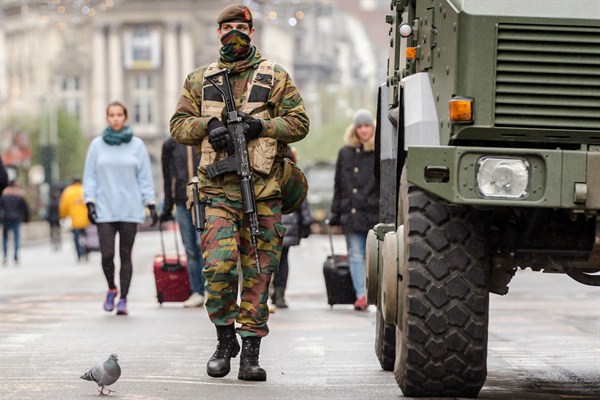Editor’s note: This article is part of an ongoing WPR series inviting authors to identify the biggest priority—whether a threat, risk, opportunity or challenge—facing the international order and U.S. foreign policy today.
For the prosperous and stable nations of Europe and North America, the cost of terrorism is usually dwarfed by the cost of reactions to it. Avoiding such overreaction is the most pressing challenge in security policy today.
The number of Westerners killed by terrorists has grown of late, thanks largely to attacks in Brussels, Paris, Istanbul and Nice related to the self-described Islamic State. Still, the threat remains objectively small. Compared to major causes of death in the United States, Europe and Canada, terrorism’s risk is negligible; lightning kills more people most years. And measured in attacks or fatalities, the threat remains limited compared to what Western nations experienced in the late 20th century. Moreover, the vast majority of terrorism’s victims—more than 99 percent in 2015, according to the Global Terrorism Database from the University of Maryland—resided elsewhere. Most terrorism comes amid civil wars.

